Academic and science activism saves lives
- Ufrieda Ho
Meet the Wits’ science superheroes whose research has saved lives.
Five Wits scientists weigh in on the University’s proud legacy of public health activism and why standing up for social justice in an unequal world remains their fight – as it should be for those who follow.
When academic life intersects with activism in the name of public good – and the certain reality that sitting on the fence itself becomes injury – something mighty happens. It is also what is needed more in the world in 2022.
A rich crop of public health scientists, researchers and doctors, many of them Witsies, have chosen to take a stand, and in so doing, to become household names. They are in the public eye not only because they can communicate their science and weigh in with expert input but because they choose to engage, and to draw a line in the sand.
Their mission is centred on educating, raising awareness for good, and deepening the media's and public's understanding of public health issues. They do so fully aware that sticking their necks out in the public arena can come with criticism, trolling, and populist attacks. They know too that populism divides, and when science and evidence-based research remain muted, it allows misinformation and disinformation to drown out informed choice.
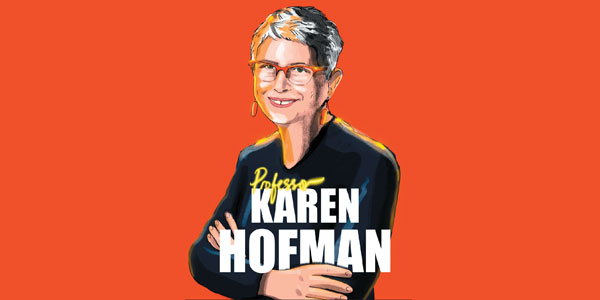
For Professor Karen Hofman, Director of the South African Medical Research Council's Centre for Health Economics and Decision Science (a unit known as PRICELESS SA – Priority Cost Effective Lessons for Systems Strengthening), informed choice extends to informed policy and smarter policymaking that optimises scarce resources for the greatest impact.
Hofman, who trained as a paediatrician, came to public health advocacy fighting for children and families, and has not lost sight of their vulnerability, particularly in the area of nutrition. Referring to one of PRICELESS’s key areas of work: researching and advocating for reducing and limiting added sugar in beverages, she explains the Unit’s impact. By pushing for limits on sugar in beverages, PRICELESS has helped to achieve breakthrough in policy reform in South Africa in recent years.
It is an intervention that helps reduce risks for obesity, especially in children, which in turn can curb the staggering upward climb of diabetes and high blood pressure in the country, which is a drain on an already meagre public health purse.
Bitter-sweet research funding
But taking on the sugar industry – “the new tobacco”, as she calls it, comes with a corporate fight that can be brutal. “You must be a bit thick-skinned; learn how to work with the media and be flexible. You must also be confident that you are conducting top notch science.
“Soon after I started this work, I was named and shamed in the press and called a ‘sugar Nazi’ by the Free Market Foundation – now, I wear that badge with pride. I am also reminded that this could be worse. For example, colleagues in Mexico got death threats for going against industry. But for me there is also the strength that we can draw on which comes with belonging to an authoritative global community of researchers,” says Hofman.
She also takes a stand against accepting corporate funding for the South African Medical Research Council's PRICELESS Unit and is wary of corporate white-washing and hijacking as she says that “there can be huge interference in research”.
“Research funding is one area wherein which universities need to be increasingly vigilant. Wits should be wary of entering into partnerships and funding agreements that can potentially compromise research,” she says.
Wits as an institution has equal responsibility to be accountable and to create environments in which academics can find and use their independent voices and do so knowing that, when it counts, they will have the backing of their institution, she adds.
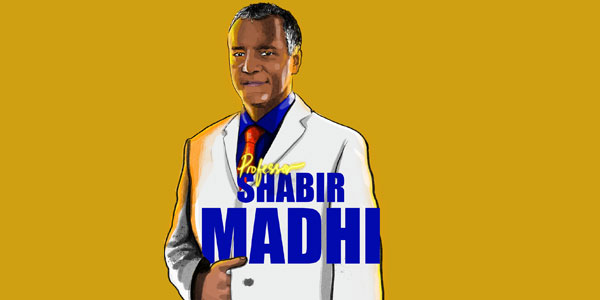
Professor Shabir Madhi, Dean of the Faculty of Health Sciences, says that vigorous debate should be encouraged at universities but there is an equal imperative that these debates have impact and inclusion beyond a university setting.
“Universities are heterogeneous, including in terms of thought, which is healthy. So, it’s not that a university necessarily needs to take a position on every issue, but individuals within a university, in their individual capacity, can promote a specific agenda, have debates, and bring these to the public,” he says.
Madhi has in recent years been at the forefront of guiding public understanding of the fast-changing story of the ×ãÇò¾º²ÊappÅÅÃû pandemic, its waves, vaccines, and the mandates and protocols around measures for personal protection. This terrain has been fraught with division, disinformation, fear and anxiety.
Towards trustworthy science communications
Together with colleagues from Wits, other universities and public health interest organisations, Madhi has led the Scientists’ Collective, which has jointly authored articles on ×ãÇò¾º²ÊappÅÅÃû that have been published for maximum access through the mainstream media.
He has also used social media to directly communicate on public health crises. In March 2022 he organised a protest at the Chris Hani Baragwanath Academic Hospital, calling out hospital and provincial health mismanagement. Incompetence and inefficiencies led to patients going without food for days and severely disrupted the essential service of biological waste removal.
Madhi stridently calls out government’s failings and missteps, because leveraging his insider’s insight, academic authority and his platform advances the fight for good.
“You don’t just make a noise because you want to make a noise; you make a noise if things are going wrong. It’s always about promoting science so that the public can trust the science, rather than trying to become an apologist for the government,” he explains. “We must be a society that speaks up when government tries to sell a narrative. For example, government’s narrative that things will be much better with the National Health Insurance is a case in point. If they don’t fix the healthcare system, that narrative is just disingenuous.”
In pursuit of purposeful activism
Madhi, whose health activism was honed when he was a medical student at Wits in the 1980s as part of the United Democratic Front, says that more attention should be paid to develop today’s students to become critically aware, and to fight for social justice beyond the issues that affect them directly or personally.
“Activism evolves over time and what is lacking now is activism for purpose. At a student level, we should be equipping people to become more critical in thought, so that hopefully they become the voices of reason in the future.”
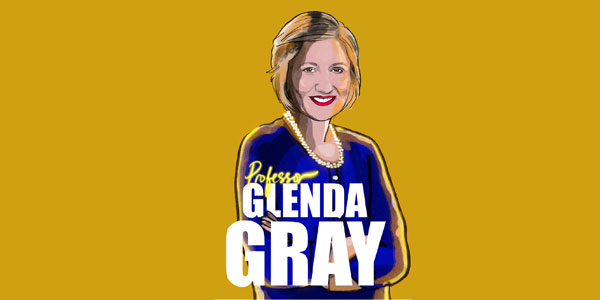
Speaking truth to power
Being exposed as a junior doctor to segregated hospitals in the apartheid era revealed injustices from which Professor Glenda Gray could not look away. She signed up to work with the Detainees’ Parents Support Committee, helping with medical examinations and the medical documentation of abuses of detainees.
“Even as I was training as a doctor and specialising, I was involved in health activism around the desegregation of hospitals and the health workers’ rights movement,” says Gray, who is the Chief Executive Officer of the South African Medical Research Council.
Gray encourages young doctors to actively join progressive health associations. “It’s very important to find these networks because you work as a collective,” she explains, emphasising that activism is as much about grassroots relevance as it is about networks and strong leadership.
At the time that Gray became a paediatrician, the HIV crisis was beginning to take its toll. It directed her career and activism towards fighting AIDS denialism, research on HIV vaccines, and for the landmark rights for women in public health facilities to access the anti-HIV drug nevirapine to stop the mother-to-child HIV transmission in 2003.
She has been outspoken on the rise of malnutrition cases as a direct result of lockdown restrictions during the first months of the ×ãÇò¾º²ÊappÅÅÃû pandemic. It put her in the crosshairs of bureaucrats more concerned with the image of the Department of Health rather than the unfolding public health concern. Gray stood her ground. The research and scientific evidence were her key weapons, and “the collective”, she says.
Gray’s colleagues and the University were unequivocal in standing with Gray when she raised the alarm.
“Of course, it’s a horrible thing to happen when it’s happening, and you wish that everything would just go back to normal. But I realised that if I apologised then I would be selling out everyone who comes after me,” she elaborates. “I also do an exercise to ‘walk myself down’ from the worst-case scenario and then I get to a place when I realise that the worst thing that can happen to me is not going to be ‘the worst thing’.”
Whistle-blowers and those who criticise goliaths of states and corporates, need better holistic support and protection, she acknowledges.
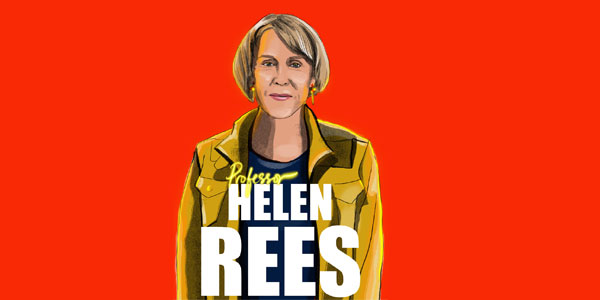
Find your fight
For Professor Helen Rees, Founder and Executive Director of the Wits Reproductive Health and HIV Institute (WRHI) and?Board?Chairperson?at?the South African Health Products Regulatory Authority (SAHPRA), there is no separation between health activism and the fight for equity and human rights.
Having written the Women’s Health Policy for the African National Congress before the 1994 elections, Rees founded the WRHI to undertake the research to inform that policy. Applying those principles, the Institute has grown from five people to over 2 000 staff, the majority of whom are women. Over the years, the WRHI has focused on emerging public health priorities, moving from sexual and reproductive health, to HIV, vaccine-preventable diseases and most recently, to climate change and health.
“I was a doctor activist before I was a clinician researcher,” she says. It is this kind of unequivocal purpose that has guided the WRHI to be an Institute that focuses on research to develop new technologies and to inform health programmes and policy, locally and globally.
Rees is no stranger to finding herself defending evidence-based decisions – particularly those made by the regulatory authority – from the criticism of groups that don’t like what the science is proving. She has learnt to stand her ground and to push back even harder. “You pause when challenged, reflect on your mandate, and respond with the science, and what is best for public health,” she adds.
She has also fine-tuned strategies for fighting back over the years. “Sometimes it’s better not to engage directly with the arguments of those who hold opposing views, for example on vaccines or on regulatory decisions, but instead to work out you own messages and repeat them over and over again, with language tailored to different audiences.”
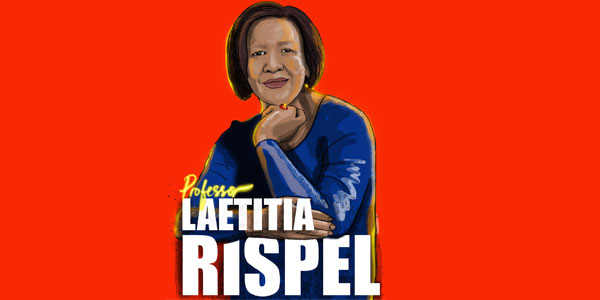
The female factor
Professor Laetitia Rispel says that to strengthen the activist-academic’s armour to stay the course for health activism requires conscious effort to build networks and to respect the importance of self-care. You need support and you need to be personally grounded. This makes blind spots more obvious and develops the skills to navigate a world of trade-offs and unfair compromise more deftly.
“Trust in your own power to make a difference, find your voice to speak truth to power,” says Rispel.
As a young health professional graduate at the Red Cross Hospital in the 1980s, Rispel says that her eyes were opened to the depth of social injustice under apartheid and in particular, the gendered oppression in the healthcare system.
“I started to understand the multiple layers of oppression experienced especially by black nurses,” she says.
As she became involved in anti-apartheid organisations in the 1980s, she also directed her activism towards working for gender transformative policies and pushing for diverse and inclusive leadership. This is still a key focus for Rispel, who holds the South African Department of Science and Technology/National Research Foundation Research Chair in the Health Workforce for Equity and Quality.
“Public health systems are largely gender-blind in their responsiveness, the quality of care, and what options and say women actually have in their healthcare,” she says.
The fight continues and for the legion of Wits activist-academics, the point is to never give up.
As the world pulls apart even more in 2022 and the widening chasm claims more of society’s most vulnerable, this is exactly the moment to resist despair. Hope must turn to purpose and purpose into action for change, for good.
- Ufrieda Ho is a freelance writer.
- This article first appeared in?Curiosity, a research magazine produced by?Wits Communications?and the?Research Office. Read more in the 14th issue, themed: #×ãÇò¾º²ÊappÅÅÃû where we celebrate a century of research excellence that has shaped today and look forward to how our next-generation researchers will impact the next 100 years.

